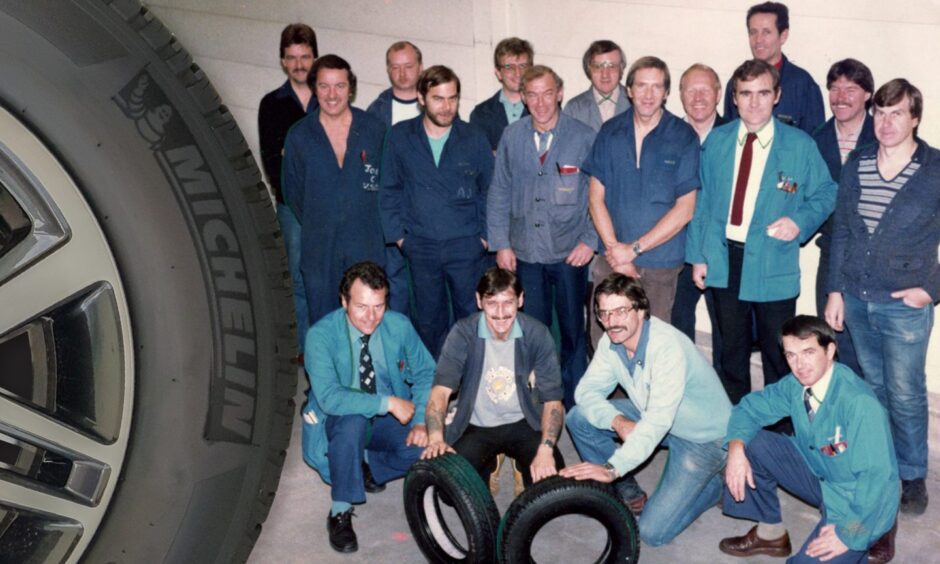
Michelin brought jobs and prosperity to Dundee after the first tyre rolled off the production line at Baldovie in November 1972.
But Dundee could so easily have missed out.
Perth, Kirkcaldy and Livingston were also considered when Michelin senior management began scouting around for a Scottish location.
In the end, financial incentives and ready supplies of both workers and water – more than enough was used each day to fill a swimming pool – clinched the deal.
Michelin announced Dundee and Aberdeen plants would open in early July 1970.
Unemployment was at its highest in 11 years in Dundee at the time.
Baldovie farmland site chosen for Michelin Dundee plant
Michelin already operated plants at Stoke, Burnley, Belfast and Ballymena.
The French-based group bought Baldovie Farm for £157,400.
The £4m factory would cover 758,000 square feet with space for 300 vehicles.
Sir Robert McAlpine won the original tender.
Michelin Recruitment Centre opened at 100 Nethergate to interview for 1,000 posts in 1971 including engineers with wages between £1,700 and £2,200 a year.
The 1970s were a high-water mark for work stoppages and wildcat strikes.
Construction work on the factory was impacted when 500 building workers went on strike for seven weeks in 1971 following the dismissal of 15 joiners.
The dispute set them back six months.
Michelin described the situation as “nothing short of a disaster”.
They agreed to return to work in December 1971 following a meeting at the Marryat Hall because the Michelin project was on the “point of collapse”.
Labour stoppages continued in 1972.
Electricians went on strike because of a wage dispute.
Making friends and colleagues in France
Meanwhile, Dundee workers were being trained at English and French factories.
Small teams were following a highly specialised training course in Burnley and Stoke in the UK and Tours, Montceau and Clermont-Ferrand in France.
The Evening Telegraph said it was not all work and no play.
“At one factory town in France the wearing of the kilt has been an instant passport to making friends even though the language is a problem.
“At Stoke, a soccer team composed of Dundonians has challenged and played no fewer than eight factory departmental teams and is unbeaten.
“In France, where one’s meal may well be taken in the company of French, Spanish, Italian and German fellow trainees, some Scots have taken part in the grape harvest.
“And later this year, after all the preparation and training there will come a historic day – the one when a highly skilled and integrated team will produce the first tyre at Baldovie.”
Michelin eventually opened a year behind schedule.
Some 300 people were employed at the factory when production started.
The official price for the first tyres produced in November 1972?
A tenner.
White House became Michelin Clubbie
The farmhouse, affectionately known as the White House, served as management offices and the personnel department as the labour force increased.
It became one of Dundee’s biggest private-sector employers.
In the early days of the factory a high proportion of the Baldovie-made tyres was destined for car manufacturers in Britain.
Within four years staff had churned out five million tyres.
Among those employed at Baldovie in the 1970s was a certain George Galloway before he was appointed a Labour party organiser in Dundee.
In December 1977 the White House became the Michelin Athletic Club.
It was better known as the Michelin Clubbie.
Factory capacity was increased in 1978.
Michelin prospered.
Millions upon millions of tyres were made.
The factory became the main British producer of the MX series of tyres in 1983 which maximised energy efficiency and gave more grip on wet roads.
The contract gave long-term security for the 900 jobs.
Dundee became Michelin’s main plant
More overtime working was guaranteed at Baldovie in 1984.
Michelin landed a major contract with British Leyland to supply the Austin Metro.
The Aberdeen plant was closed.
Michelin axed 2,600 jobs in England in 1985 after losing £1m a week in Britain in the face of heightened competition from Japan and Eastern Europe.
Dundee became the premier production plant.
The recovery plan worked.
Michelin MX was Europe’s most popular car tyre in 1986.
The Dundee factory was at its highest manning level with 1,300 employees.
Profit was up from £3.1m to £14m.
Work started on a new £1.2m warehouse at Baldovie in 1987.
But the company was struggling by the early 1990s as the recession hit.
Car buyers were increasingly feeling the economic pinch.
Workers at Baldovie went on strike in January 1991 following a mass meeting at the Caird Hall after a scheduled pay increase was frozen until April.
Behind-the-scenes talks ended the strike after a week.
The economic climate and its effect on the vehicle industry was making it increasingly difficult for Michelin to remain competitive in the tyre market.
There were 120 redundancies in 1992 and 1993 to balance the books.
Michelin was back in the black when the recession ended.
The Michelin Road Classic Tyre was launched at Dundee in 1994.
The loss sheet changed to a £54m profit.
Celebrating a milestone moment in 1997
Michelin celebrated its 25th anniversary at Baldovie in 1997.
“The reason Michelin chose Dundee so many years ago, and the reasons why we are still here today, reflect well on the local facilities,” said general manager Chris Dawes.
“Our success to date and in the future lies in the qualities of our workforce.”
One employee clocked off for good in May 1999.
Nightshift worker Derek Esposito from Carnoustie won £1.4m on the National Lottery.
He gave up work after 28 years at Michelin.
Michelin was still employing 1,000 people when it marked its 30th anniversary in 2002.
To mark the occasion, tours were held for the families of staff and the canteen was offering a free meal to the workforce.
A special cake was baked in the shape of the Michelin Man.
In 2006 there was plenty of gnashing of teeth when Baldovie became the first Michelin factory to install its own wind turbine generators.
Not since the first multi-storey housing blocks first began to appear in the city in the 1960s was the city’s skyline changed in such dramatic fashion.
Michelin responded to a 15% slump in tyre sales by cutting hours and production in 2009 and revealed shock plans to prepare to shut down Baldovie.
Wind of change was blowing for Michelin
John Reid was appointed factory manager after convincing Michelin bosses not to close the site and things went from survival to success.
About 70% of the 24,000 tyres a day being produced were going to central Europe with the rest to North America, the Middle East, South America and China.
Michelin celebrated its 40th anniversary in 2012 before welcoming the Queen and Duke of Edinburgh to open the plant’s massive expansion in 2016.
Everything seemed rosy in the garden.
Roll on November 2018 and Michelin announced the plant would be closing in 2020 because of cheap Asian imports and a decline in the market for its tyres.
Skilled and loyal Dundee workers were the losers.
But one door closed and another opened.
Scottish Enterprise and Dundee City Council, along with Michelin, entered into a partnership to turn the site into a world-class innovation hub.
The Michelin name lives on at Baldovie.
A nod to past times when Dundonians churned out seven million car tyres a year.
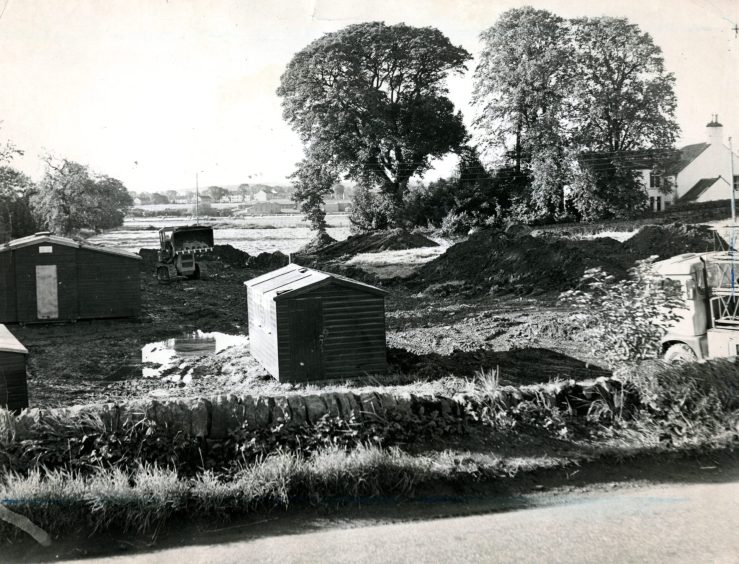
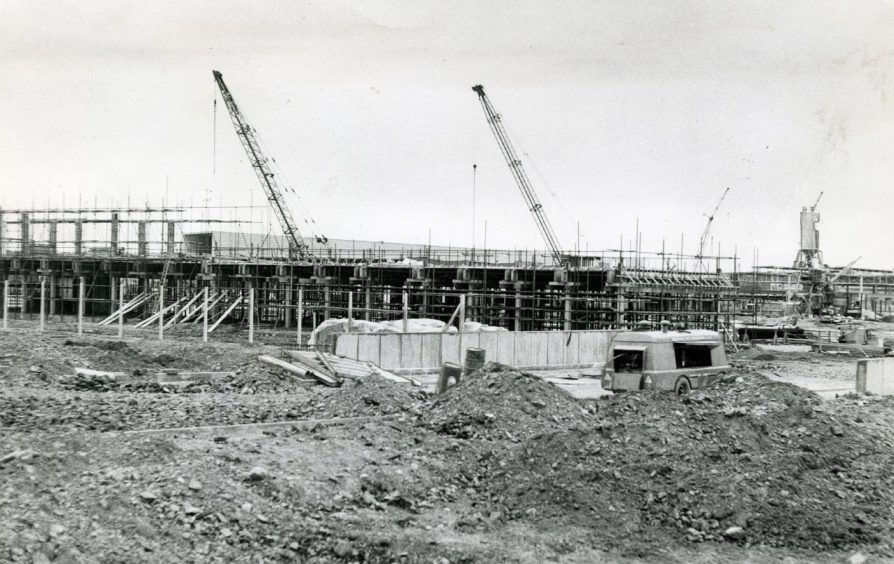
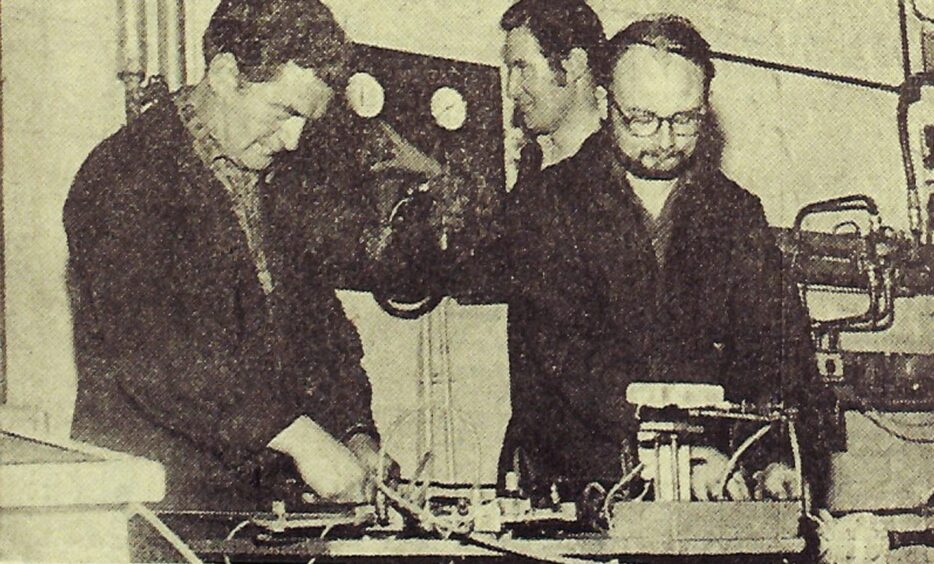
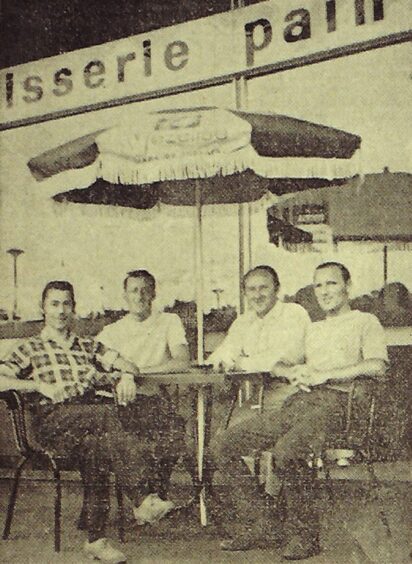
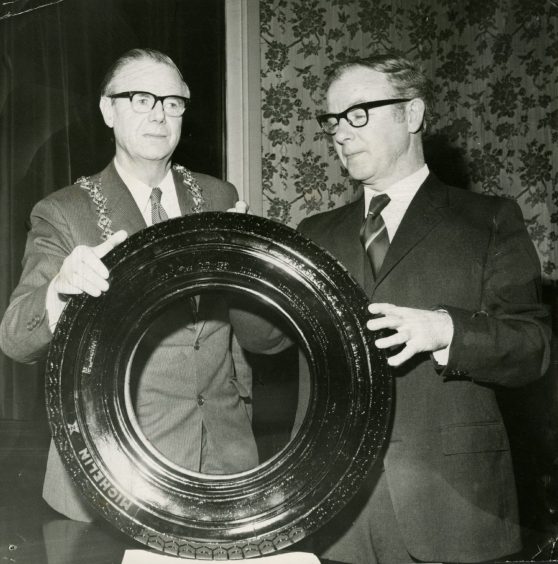
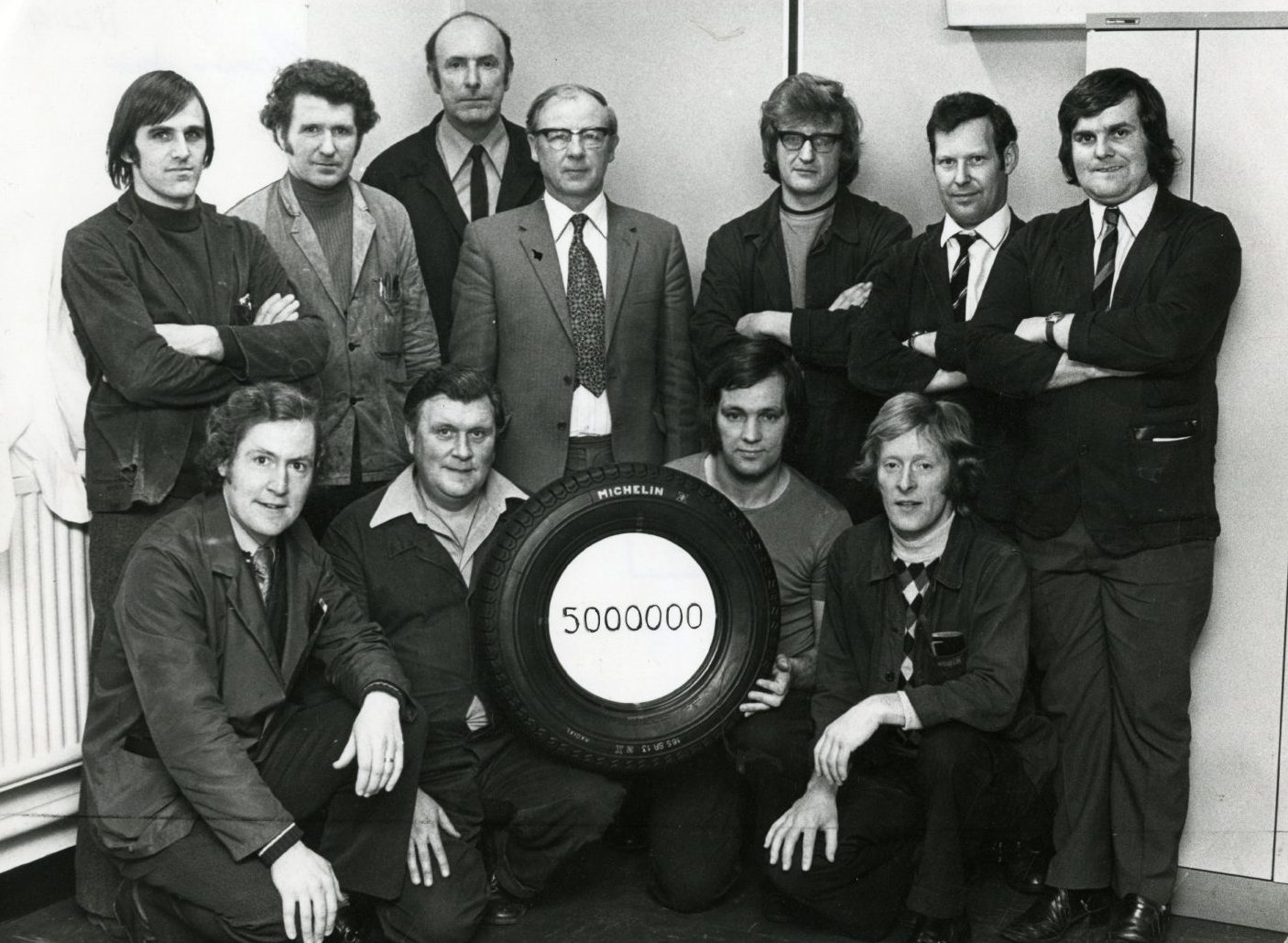
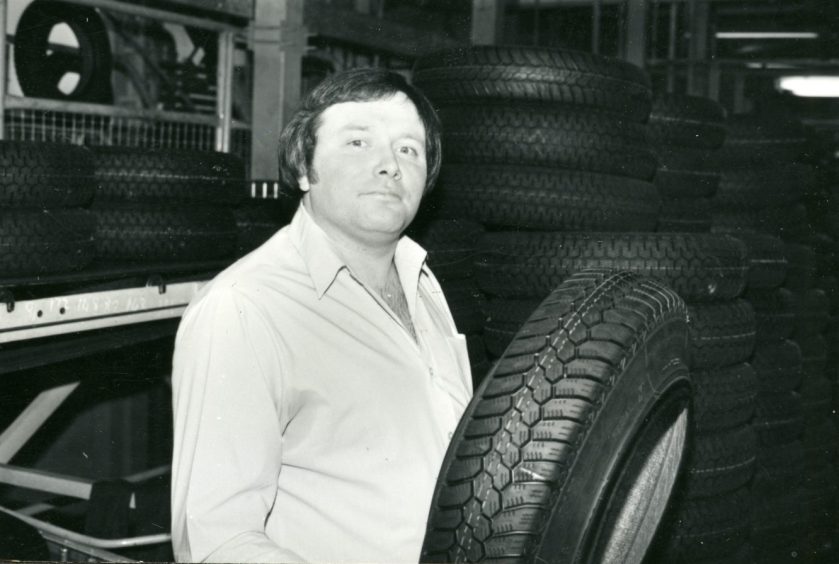
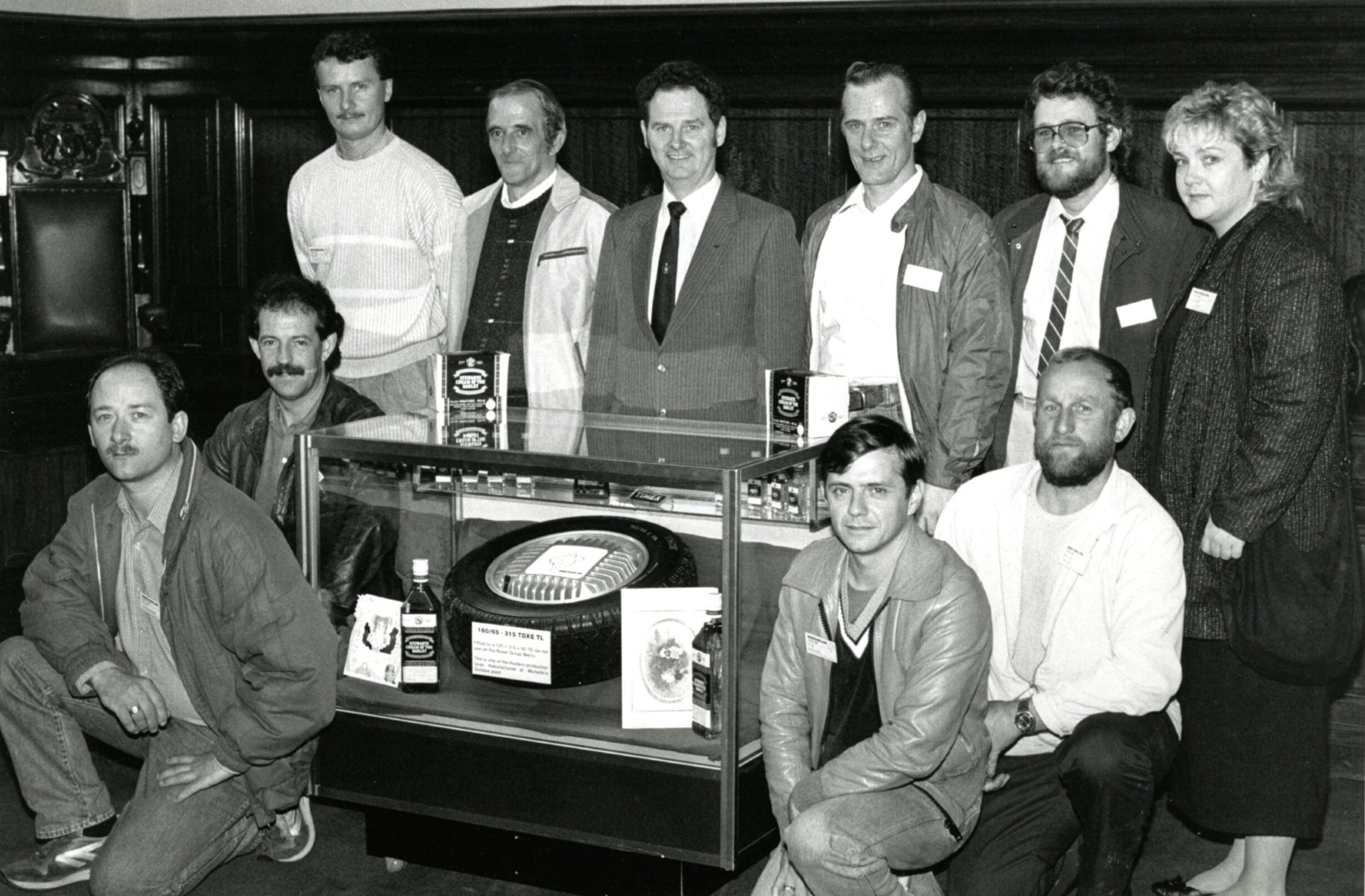
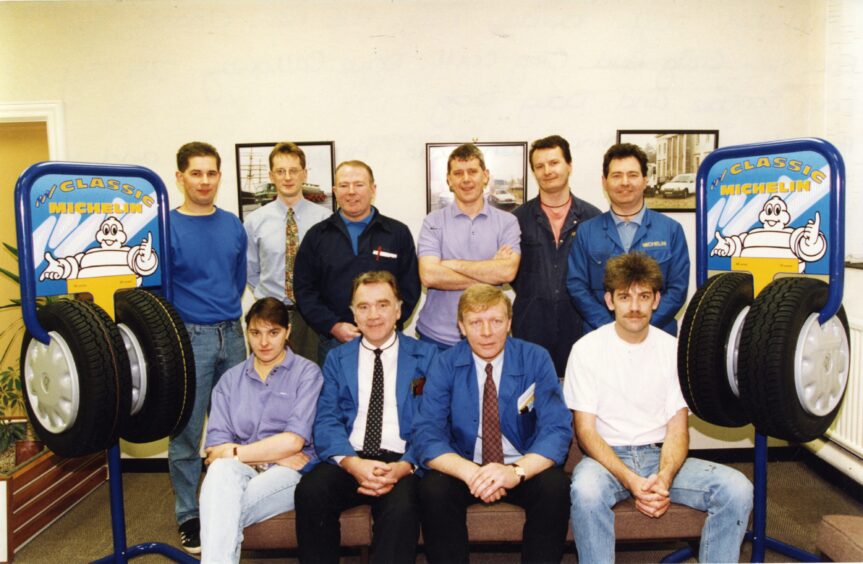
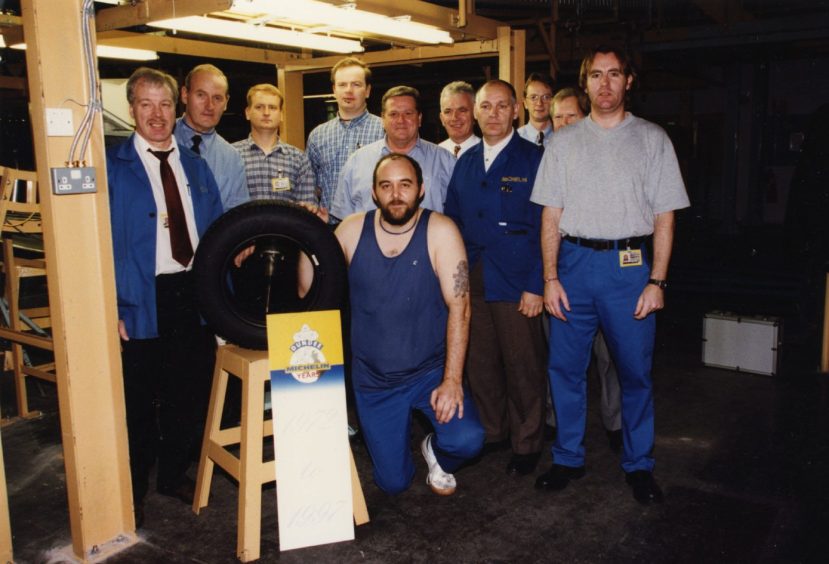
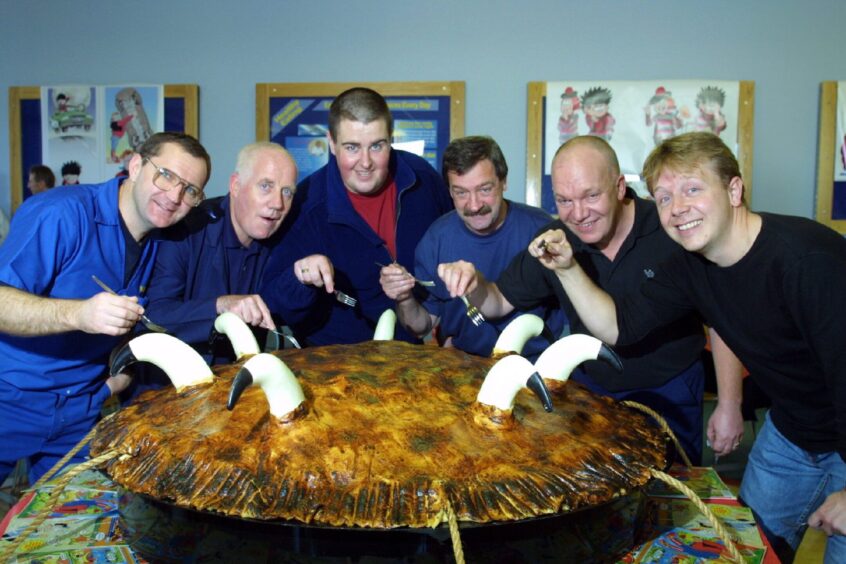
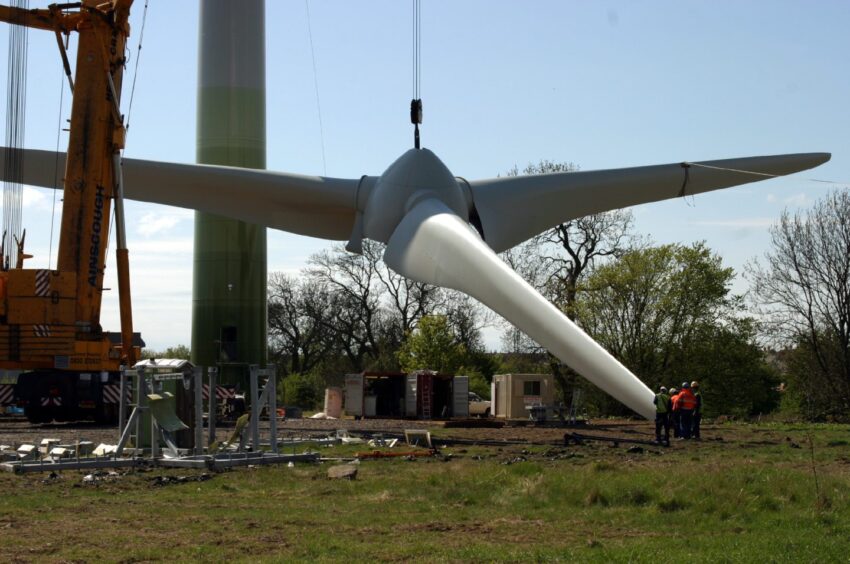
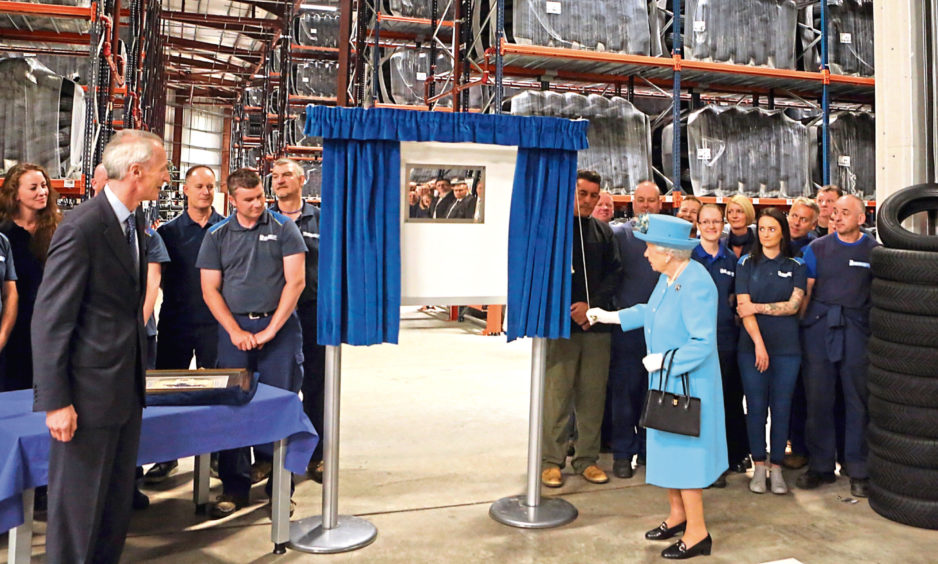
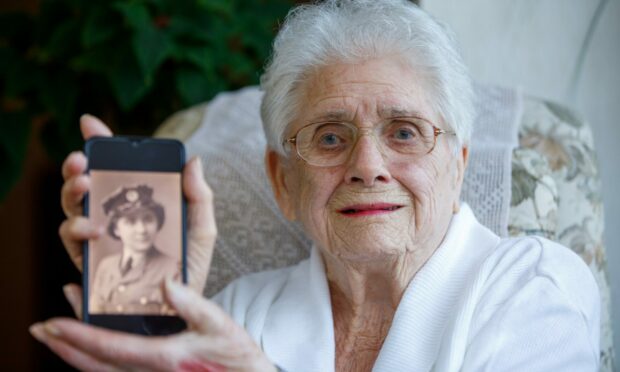
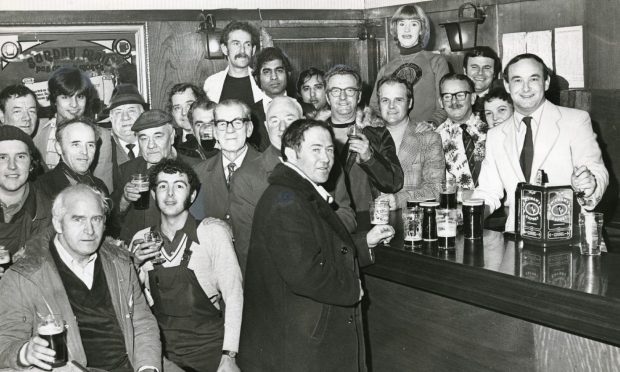

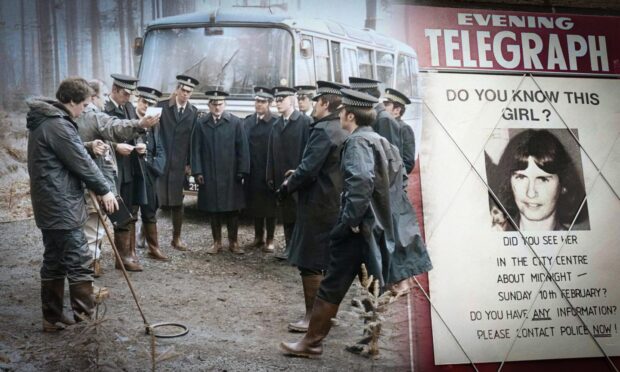
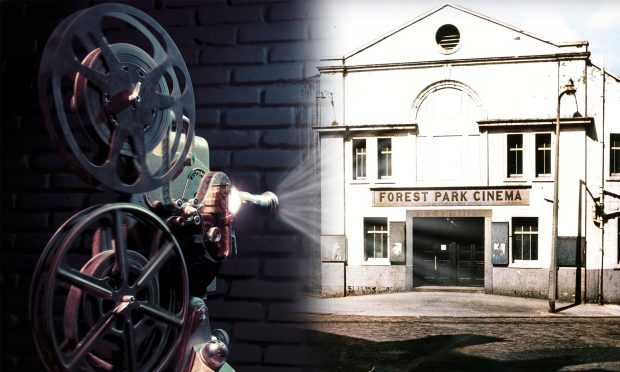
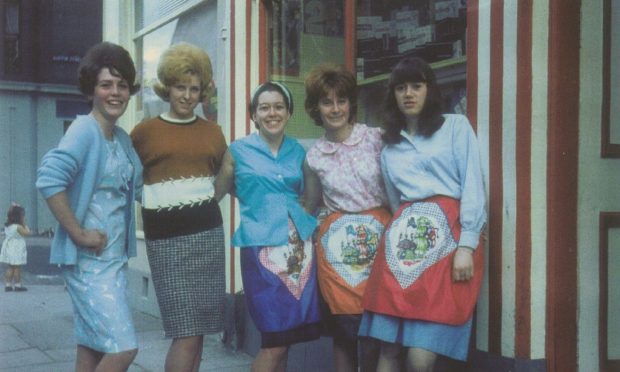
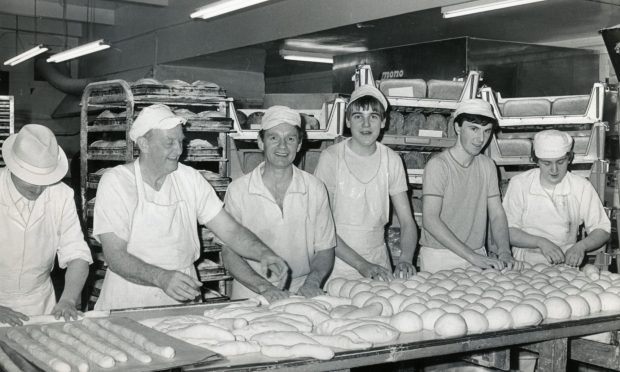
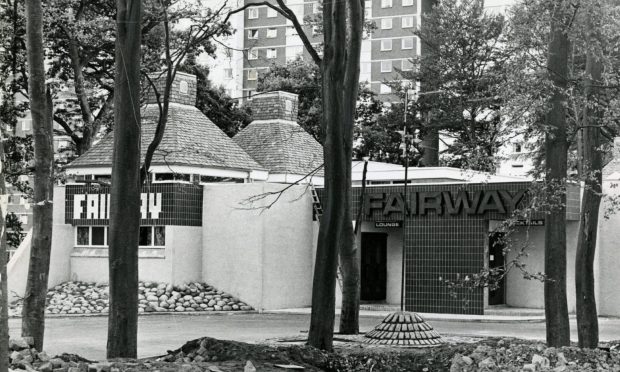
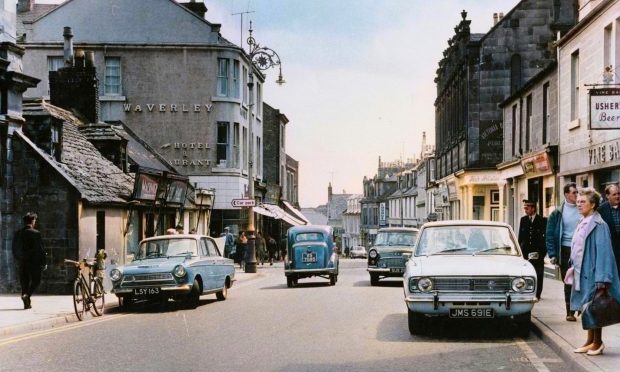
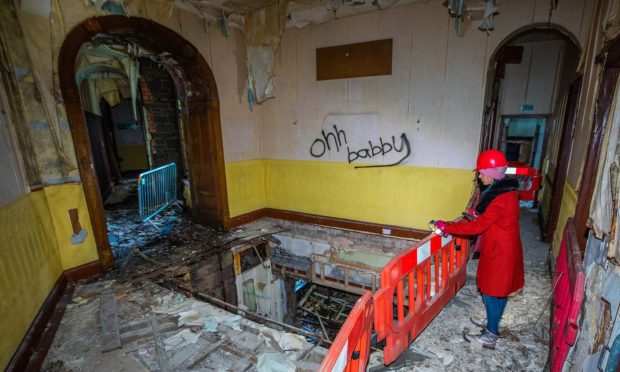
Conversation